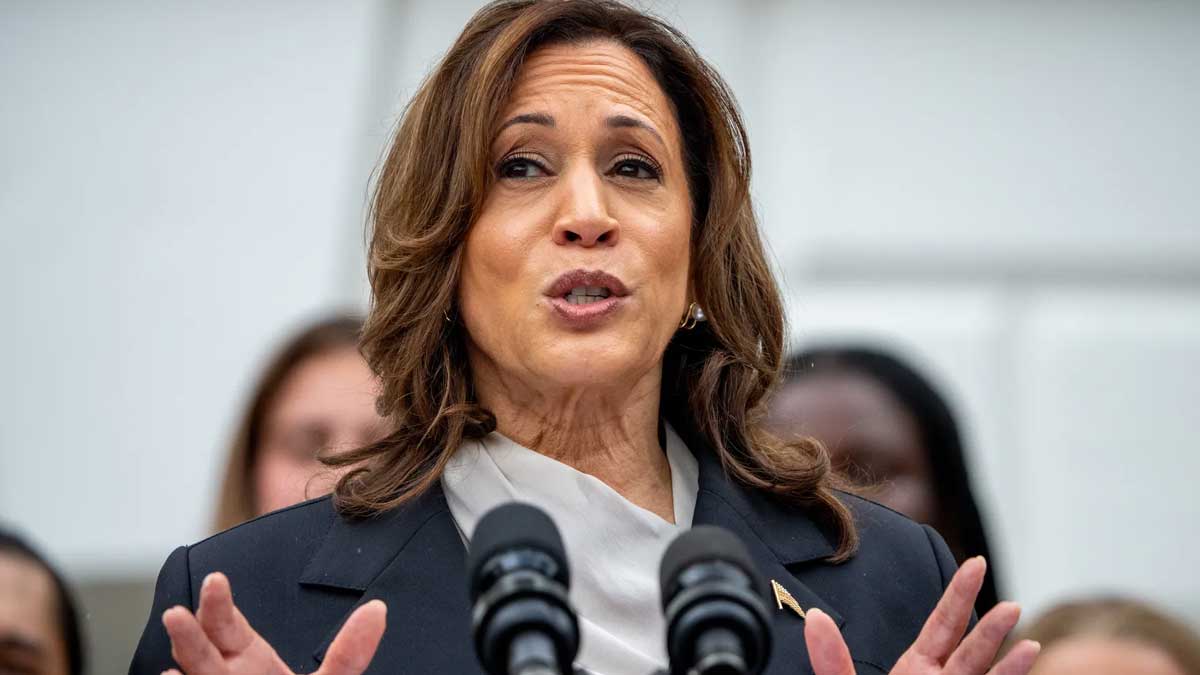- Home
- Billionaires
- Investing Newsletters
- 193CC 1000
- Article Layout 2
- Article Layout 3
- Article Layout 4
- Article Layout 5
- Article Layout 6
- Article Layout 7
- Article Layout 8
- Article Layout 9
- Article Layout 10
- Article Layout 11
- Article Layout 12
- Article Layout 13
- Article Layout 14
- Article Sidebar
- Post Format
- pages
- Archive Layouts
- Post Gallery
- Post Video Background
- Post Review
- Sponsored Post
- Leadership
- Business
- Money
- Small Business
- Innovation
- Shop
Recent Posts
Trump’s Claims About Harris’s Race Are False

Former President Donald Trump recently made controversial remarks at the National Association of Black Journalists convention, suggesting that Vice President Kamala Harris only recently identified as Black. His statements reflect a broader trend of racially charged criticism leveled against Harris, a new Democratic presidential contender. However, Trump’s assertions about Harris’s racial identity are factually incorrect and misrepresent her long-standing public acknowledgment of her heritage.
During his appearance at the convention, Trump argued that Harris, whose heritage includes Jamaican and Indian roots, was “always of Indian heritage” but only “recently made a turn” to “become a Black person.” This characterization not only distorts Harris’s self-identification but also disregards her consistent public statements about her racial identity. Harris’s father, Donald Harris, is Jamaican, and her mother, Shyamala Gopalan Harris, is from India. Despite this multicultural background, Kamala Harris has long embraced and publicly identified with her Black heritage.
Growing up in California, Harris was immersed in a Black community and attended Howard University, a historically Black college and university (HBCU), where she further engaged with her racial identity. She was also president of the Black Law Students Association at the University of California, San Francisco, where she pursued her law degree.
In 2003, Harris openly discussed her racial identity with AsianWeek, a San Francisco-based publication, stating that her mother “fell in love with my father, a Black man,” and that she was raised in a “Black community.” This acknowledgment has been consistent throughout her career and public life. Harris’s early statements about her identity, including her assertion in a 2016 interview with The New York Times and her memoir “The Truths We Hold” published in 2019, affirm her self-identification as a Black woman. She has described how her mother and maternal grandparents instilled pride in her South Asian roots while understanding that they were raising Black daughters.
Trump’s comments came under scrutiny when he told ABC’s Rachel Scott that he “did not know she was Black until several years ago when she happened to turn Black and now wants to be known as Black.” He claimed that Harris was “Indian all the way” until she “suddenly made a turn” to become Black. Such statements not only misrepresent Harris’s identity but also reflect a broader pattern of racially insensitive rhetoric that undermines genuine discussions about race and identity.
Harris’s campaign spokesperson, Michael Tyler, condemned Trump’s remarks as a “tirade” indicative of the “chaos and division” often associated with Trump’s rhetoric. Tyler also criticized Trump for his “personal attacks and insults at Black journalists” following the interview, where Trump had labeled the questions as “Rude and Nasty.” This response highlights the broader context of Trump’s controversial statements and their impact on public discourse.
Kamala Harris launched her 2024 presidential campaign last week amid President Joe Biden’s abrupt exit from the race due to concerns about his age and cognitive abilities following a challenging debate performance. Since her campaign launch, Harris has faced significant criticism from GOP pundits and politicians. Some critics have questioned her qualifications and labeled her as a product of diversity, equity, and inclusion (DEI) initiatives—a reference to the efforts that emerged from the 2020 protests against racial injustice. These criticisms have been widely condemned as racist, though some Republican lawmakers, including Rep. Harriett Hageman of Wyoming and Rep. Tim Burchett of Tennessee, continue to assert that Harris’s appointment was based on race rather than merit.
In contrast, House Speaker Mike Johnson, R-La., has expressed skepticism about these claims, asserting that Harris’s “ethnicity or her gender have nothing to do with this whatsoever.” This perspective suggests a more nuanced view of Harris’s candidacy and the factors influencing her political career.
As the Democratic National Convention approaches, Kamala Harris could become the official Democratic nominee as early as Thursday. This potential nomination comes as a result of a recent rules change approved by a Democratic National Convention panel. The convention, which typically involves a lengthy primary process and delegate selection, is scheduled to begin on August 19 in Chicago. This upcoming event will be a pivotal moment in Harris’s campaign and could further shape the discourse surrounding her candidacy.
In conclusion, Donald Trump’s recent remarks about Kamala Harris’s racial identity represent a distortion of her long-standing self-identification and public acknowledgment of her heritage. As the political landscape continues to evolve, it is crucial to address these false narratives and focus on substantive discussions about candidates’ qualifications and policies.
Recent Posts
Categories
- 193 Countries Consortium Partner1
- 193cc Digital Assets2
- 5G1
- Aerospace & Defense48
- AI37
- Arts3
- Banking & Insurance11
- Big Data3
- Billionaires1,467
- Boats & Planes1
- Business332
- Careers13
- Cars & Bikes79
- CEO Network1
- CFO Network17
- CHRO Network1
- CIO Network1
- Cloud10
- CMO Network18
- Commercial Real Estate7
- Consultant1
- Consumer Tech194
- CxO1
- Cybersecurity73
- Dining1
- Diversity, Equity & Inclusion4
- Education7
- Energy8
- Enterprise Tech29
- Events11
- Fintech1
- Food & Drink2
- Franchises1
- Freelance1
- Future Of Work2
- Games149
- GIG1
- Healthcare79
- Hollywood & Entertainment203
- Houses1
- India’s 1000 Richest1
- Innovation46
- Investing2
- Investing Newsletters4
- Leadership65
- Lifestyle11
- Manufacturing1
- Markets20
- Media327
- Mobile phone1
- Money13
- Personal Finance2
- Policy569
- Real Estate1
- Research6
- Retail1
- Retirement1
- Small Business1
- SportsMoney42
- Style & Beauty1
- Success Income1
- Taxes2
- Travel10
- Uncategorized14
- Vices1
- Watches & Jewelry2
- world's billionaires1,436
- Worlds Richest Self-Made Women2
Related Articles
South Korea Plane Crash: A Tragic Loss and Global Mourning
The tragic plane crash at South Korea’s Muan International Airport on Sunday...
By 193cc Agency CouncilDecember 30, 2024H-1B Visa Debate Splits Trump Allies and Silicon Valley
The debate over H-1B visas has once again become a contentious issue,...
By 193cc Agency CouncilDecember 28, 2024Trump Moves $4B Stake in Truth Social Parent, Stock Drops 6%
Donald Trump recently transferred his 57% stake in Trump Media & Technology...
By 193cc Agency CouncilDecember 20, 2024House Rejects Trump-Backed Funding Bill, Shutdown Looms
The U.S. House of Representatives rejected a new government funding bill on...
By 193cc Agency CouncilDecember 20, 2024















Leave a comment